
There’s a wonderful short story collection out now called Pond by Claire-Louise Bennett. It’s something of a linked collection, in that the longer stories that make up the bulk of the book all seem to be narrated by the same unnamed woman, formerly of England but now living in a cottage in the west of Ireland, doing not much more than letting her mind wander as she probes the confines of her modest home. These stories do not build upon one another in the sense of creating a continuous plot. Rather, they offer separate investigations into the life of this woman, self-contained and comprehensible in any order. What’s more, between these longer stories sit pieces that might be described as “micro” or “flash” fictions, which are not set in the cottage and are not clearly narrated by the same woman. These shorter pieces are aesthetically linked to the longer stories — the entire book is written in the same distinctive style of prose — but are otherwise unrelated. The reading experience is unusual and illuminating, and upon completion I thought to myself, “Wow, what a lovely little collection of stories.”
I was flummoxed, then, to discover that there is some confusion as to the book’s genre. Meghan O’Rourke’s review of Pond in The New York Times Book Review appears under the headline “A Debut Novel Traces a Woman’s Life in Solitude.” Novels appear to be O’Rourke’s only points of reference for Bennett’s work. She writes that Pond reminds her of “the kind of old-fashioned British children’s books I read growing up,” and “David Markson’s avant-garde novel ‘Wittgenstein’s Mistress’…” In another review for The Times, Dwight Garner acknowledges the short story-ness of Bennett’s book even as he insists that the work is a novel: “‘Pond’ is a slim novel, told in chapters of varying lengths that resemble short stories. There’s little in the way of conventional plot.” Hmm. If I didn’t know any better, I’d think Garner was describing a short story collection.


 This phenomenon of misidentifying a story collection as a novel is surprisingly common, both in book reviewing and in polite conversation. A number of people seem to use the term “novel” as a synonym for “book,” and because of this I sometimes see even works of nonfiction referred to as novels. (I won’t call anyone out on this point, since it’s really quite embarrassing.) More often, the word “novel” is applied to collections when all of the stories within feel strongly of a piece (and consequently are favorites of the creative writing workshop). The Things They Carried by Tim O’Brien is one example. Jesus’ Son by Denis Johnson is another. The Emigrants by W. G. Sebald is a third. To be fair, these works frequently fail to identify themselves with the word “stories” on their book jackets (as does Pond). But a reader with the most basic sense of literary genre should be able to see them for what they are.
This phenomenon of misidentifying a story collection as a novel is surprisingly common, both in book reviewing and in polite conversation. A number of people seem to use the term “novel” as a synonym for “book,” and because of this I sometimes see even works of nonfiction referred to as novels. (I won’t call anyone out on this point, since it’s really quite embarrassing.) More often, the word “novel” is applied to collections when all of the stories within feel strongly of a piece (and consequently are favorites of the creative writing workshop). The Things They Carried by Tim O’Brien is one example. Jesus’ Son by Denis Johnson is another. The Emigrants by W. G. Sebald is a third. To be fair, these works frequently fail to identify themselves with the word “stories” on their book jackets (as does Pond). But a reader with the most basic sense of literary genre should be able to see them for what they are.
A novel and a short story collection are very different forms. A novel tells one long narrative. It cannot be divided without surrendering its functionality. Sometimes it is segmented into chapters or sections, but these cannot (at least not all of them) stand alone as shorter independent works. They rely on each other for coherence of plot and theme. A collection, on the other hand, is composed of several shorter, discrete narratives that can stand independently of each other without forsaking their coherence. The order in which you read them is not essential to understanding them, nor would it matter if you read three at random and never looked at the rest. In the hands of a skilled author, it is sometimes true that a group of these stories may become more than the sum of its parts. The stories may act as vignettes in the life of a person or a community, and in so doing produce a sense of immersion somewhat reminiscent of a novel. We call these “linked collections” or “story cycles.” But they are not novels, nor are they attempting to be novels. (A “novel-in-stories,” as you’ve probably suspected, is purely a marketing trick.)


 When reviewing a linked collection, a reviewer will sometimes (bafflingly) simulate confusion as to whether the book is a collection or a novel or something in between. (Ian Maleney, in his review of Pond for The Millions, says that the book, “rests with no little charm somewhere between collection and novel without ever settling on one or the other.” Nice try, Maleney.) These reviewers often like to pretend that the author has somehow invented a third genre. But you and I aren’t so easily fooled, reader. We know that there is nothing new under the sun. As James Nagel points out in his 2001 book The Contemporary American Short-Story Cycle, the form has been with us for a century at least. Works like Sherwood Anderson’s Winesburg, Ohio, Jean Toomer’s Cane, and Ernest Hemingway’s In Our Time presented a cohesion of intent that, at the time of their publication, tempted reviewers to insist that they must be more than simple collections of stories. (In Our Time even contains interstitial shorts between longer stories, just like Pond.) Nagel writes:
When reviewing a linked collection, a reviewer will sometimes (bafflingly) simulate confusion as to whether the book is a collection or a novel or something in between. (Ian Maleney, in his review of Pond for The Millions, says that the book, “rests with no little charm somewhere between collection and novel without ever settling on one or the other.” Nice try, Maleney.) These reviewers often like to pretend that the author has somehow invented a third genre. But you and I aren’t so easily fooled, reader. We know that there is nothing new under the sun. As James Nagel points out in his 2001 book The Contemporary American Short-Story Cycle, the form has been with us for a century at least. Works like Sherwood Anderson’s Winesburg, Ohio, Jean Toomer’s Cane, and Ernest Hemingway’s In Our Time presented a cohesion of intent that, at the time of their publication, tempted reviewers to insist that they must be more than simple collections of stories. (In Our Time even contains interstitial shorts between longer stories, just like Pond.) Nagel writes:
[T]he fact of the matter is that the short-story cycle is a rich genre with origins decidedly antecedent to the novel, with roots in the most ancient of narrative traditions. The historical meaning of “cycle” is a collection of verse or narratives centering around some outstanding event or character. The term seems to have been first applied to a series of poems, written by a group of Greek writers known as the Cyclic Poets, that supplement Homer’s account of the Trojan war. In the second century B.C., the Greek writer Aristides wrote a series of tales about his hometown, Miletus, in a collection entitled Milesiaka. Many other early classics also used linked tales, Homer’s Odyssey, Ovid’s Metamorphoses, the Arabian A Thousand and One Nights among them…Throughout these early works two ideas became clear in the concept of a cycle: that each contributing unit of the work be an independent narrative episode, and that there be some principle of unification that gives structure, movement, and thematic development to the whole.
 Perhaps because the average reader prefers novels, encountering few story collections (or none at all), a linked collection is enough to give him pause. But a linked collection is still a collection and not a novel, just as a tall man is still a man and not an ogre. Our most prestigious American literary prize, the Pulitzer, recognizes this fact. Known for its first three decades of existence as the Pulitzer Prize for a Novel, it was renamed the Pulitzer Prize for Fiction in 1948 so that it could be awarded to a debut author named James A. Michener for his Tales of the South Pacific. That book is a linked story collection, though the Pulitzer jury might have gotten away with pretending it was novel if Michener hadn’t conspicuously placed the word “Tales” right in its title. Since then, short story collections have been eligible for the award, though to date only six others have won it. (For the sake of comparison, there have been seven years since 1948 when no prize for fiction was awarded at all.)
Perhaps because the average reader prefers novels, encountering few story collections (or none at all), a linked collection is enough to give him pause. But a linked collection is still a collection and not a novel, just as a tall man is still a man and not an ogre. Our most prestigious American literary prize, the Pulitzer, recognizes this fact. Known for its first three decades of existence as the Pulitzer Prize for a Novel, it was renamed the Pulitzer Prize for Fiction in 1948 so that it could be awarded to a debut author named James A. Michener for his Tales of the South Pacific. That book is a linked story collection, though the Pulitzer jury might have gotten away with pretending it was novel if Michener hadn’t conspicuously placed the word “Tales” right in its title. Since then, short story collections have been eligible for the award, though to date only six others have won it. (For the sake of comparison, there have been seven years since 1948 when no prize for fiction was awarded at all.)
It may seem defensive or pedantic to insist on these designations. Why does it matter? I hear you ask, reader. Books are just books. No one is saying one form is better than another. All things being equal, perhaps that would be that case, and a book’s genre would be so nonessential as to not require specification. But things, of course, are never equal. It is far easier to publish a novel these days than a collection of short stories, so much so that many pragmatic writers have essentially abandoned the form. Fantastic short story writers end up spending their careers producing middling novels, and our literature is poorer for it. So in those rare cases when a short story collection does manage to be published (and reviewed, and sold, and read by a large number of people), to deny that collection its genre — to call it a novel, as though the world really needs another novel — is to rob the medium of short fiction of a hard-earned victory.

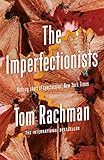 Even more nefarious is when publishers themselves mislabel collections as novels. Printing the word “novel” on a book cover makes it very difficult for malcontents like me to argue that the book is anything otherwise. Tom Rachman’s excellent 2010 book The Imperfectionists is a collection of 11 self-contained stories following various employees of an international newspaper based in Rome. Only the thinnest of interstitials about the history of the newspaper (again, like In Our Time) provided cause for Dial Press to term the book “a novel.” Also published in 2010 was Jennifer Egan’s A Visit from the Goon Squad, which Knopf called “a novel” but which I like to call “the most recent short story collection to win a Pulitzer Prize.” The book’s shifts in point of view, style, tense, and time period caused reviewers to marvel at what a unique and unusual novel it was, though such shifts are common in the genre of the short story collection. Egan almost certainly benefitted from the book being called a novel, but now that the dust has settled and the prize money has been spent, it’s probably in Egan’s best interest that posterity regard the book for what it actually is. Goon Squad is a bad novel, but it’s a phenomenal short story collection, one that perfectly embodies Nagel’s notion of “independent narrative episode[s]” linked by “some principle of unification.” (Plus, thinking of the book as a collection is the only way to make that 70-page Power Point section look like a fun narrative experiment instead of a saccharine bit of self-indulgence. Take that, Egan!)
Even more nefarious is when publishers themselves mislabel collections as novels. Printing the word “novel” on a book cover makes it very difficult for malcontents like me to argue that the book is anything otherwise. Tom Rachman’s excellent 2010 book The Imperfectionists is a collection of 11 self-contained stories following various employees of an international newspaper based in Rome. Only the thinnest of interstitials about the history of the newspaper (again, like In Our Time) provided cause for Dial Press to term the book “a novel.” Also published in 2010 was Jennifer Egan’s A Visit from the Goon Squad, which Knopf called “a novel” but which I like to call “the most recent short story collection to win a Pulitzer Prize.” The book’s shifts in point of view, style, tense, and time period caused reviewers to marvel at what a unique and unusual novel it was, though such shifts are common in the genre of the short story collection. Egan almost certainly benefitted from the book being called a novel, but now that the dust has settled and the prize money has been spent, it’s probably in Egan’s best interest that posterity regard the book for what it actually is. Goon Squad is a bad novel, but it’s a phenomenal short story collection, one that perfectly embodies Nagel’s notion of “independent narrative episode[s]” linked by “some principle of unification.” (Plus, thinking of the book as a collection is the only way to make that 70-page Power Point section look like a fun narrative experiment instead of a saccharine bit of self-indulgence. Take that, Egan!)
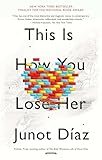 Both The Imperfectionists and A Visit from the Goon Squad were bestsellers, and I certainly don’t begrudge Rachman or Egan their success. What is painful is the notion that the audiences of these books did not realize that they were enjoying story collections. The publishing industry is constantly telling short story writers that their work can’t sell, but instances like these seem to suggest that the publishing industry is not particularly interested in fostering an appetite for short story collections among its readership. If you liked Goon Squad, then you like short fiction, but you may be unaware of that fact because you think that you read novel. It’s refreshing, then, when an author resists the urge to have his work mislabelled as a novel, as Junot Díaz did in the case of This Is How You Lose Her. In an interview with Gina Frangello at The Rumpus, he explains:
Both The Imperfectionists and A Visit from the Goon Squad were bestsellers, and I certainly don’t begrudge Rachman or Egan their success. What is painful is the notion that the audiences of these books did not realize that they were enjoying story collections. The publishing industry is constantly telling short story writers that their work can’t sell, but instances like these seem to suggest that the publishing industry is not particularly interested in fostering an appetite for short story collections among its readership. If you liked Goon Squad, then you like short fiction, but you may be unaware of that fact because you think that you read novel. It’s refreshing, then, when an author resists the urge to have his work mislabelled as a novel, as Junot Díaz did in the case of This Is How You Lose Her. In an interview with Gina Frangello at The Rumpus, he explains:
[T]here’s little question that short stories, like poetry, don’t get the respect they deserve in the culture — but what can you do? Like Canute, one cannot fight the sea, you have to go with your love, and hope one day, things change. And yes, I have no doubt this book could have been easily called a novel — novel status has certainly been granted to less tightly-related collections of stories. By not calling this book a novel or a short story collection, I guess I was trying to keep the door open to readers recognizing and enjoying a third form caught somewhere between the traditional novel and the standard story anthology. A form wherein we can enjoy simultaneously what is best in both the novel and the short story form. My plan was to create a book that affords readers some of the novel’s long-form pleasures but that also contains the short story’s ability to capture what is so difficult about being human — the brevity of our moments, their cruel irrevocability.
I disagree with Díaz’s premise that the book represents a new, third form (This Is How You Lose Her is a simply another linked story collection, in the proud tradition of the many linked story collections that have come before it), but you get the point. A linked collection does things that a novel does not, things that are worthy and vital and capable of standing on their own merit. A collection replicates the chaotic, fragmentary messiness of life in a way that a novel can’t: life, which doesn’t follow one large narrative but seems to be the aggregate of many smaller ones. A day is not a chapter. A day is a story, with its own peculiar conflicts, themes, motifs, and epiphanies.
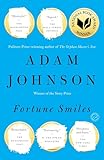
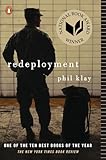
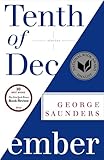 There has been much in the past few years to inspire confidence in the idea that the short fiction collection might finally attain the readership it deserves as a indispensable American art form. This Is How You Lose Her was a New York Times bestseller and a finalist for the 2012 National Book Award. In 2013, George Saunders’s Tenth of December repeated both feats. The 2014 National Book Award was given to Phil Klay’s collection Redeployment. In 2015, it went to Adam Johnson’s collection Fortune Smiles. Collections by Nathan Englander and Kelly Link have been finalists for Pulitzers in recent years (though both failed to attain the lofty heights of Michener’s and Egan’s). Alice Munro’s 2013 Nobel Prize felt, for many writers of short fiction, like a long overdue nod to a worthy form and its incorrigible practitioners.
There has been much in the past few years to inspire confidence in the idea that the short fiction collection might finally attain the readership it deserves as a indispensable American art form. This Is How You Lose Her was a New York Times bestseller and a finalist for the 2012 National Book Award. In 2013, George Saunders’s Tenth of December repeated both feats. The 2014 National Book Award was given to Phil Klay’s collection Redeployment. In 2015, it went to Adam Johnson’s collection Fortune Smiles. Collections by Nathan Englander and Kelly Link have been finalists for Pulitzers in recent years (though both failed to attain the lofty heights of Michener’s and Egan’s). Alice Munro’s 2013 Nobel Prize felt, for many writers of short fiction, like a long overdue nod to a worthy form and its incorrigible practitioners.
And yet short fiction collections remain incredibly difficult to sell. They remain under-published, under-reviewed, and under-read. Aspiring authors are encouraged to set aside their stories and get to work on something longer, lest they be condemned to the periphery of publishing, out in the brambles with the poets and their chapbooks. Even George Saunders, the story writer who famously does not write novels, is writing novels now. Perhaps Claire-Louise Bennett is glad to have Pond called a novel, and I should stop making trouble where trouble needn’t be made. But if the best hope for a short story writer is that reviewers and readers mistake her work for a novel, than fiction has reached a truly dispiriting place. Perhaps novelists will soon be hoping their work is mistaken for memoir, and fiction as a concept will disappear entirely.
I guess we’ll see. In the meantime, I encourage you, dear reader, to go to your local bookstore and pick up a copy of Pond, or any other short story collection, and free yourself from the tyranny of sustained narrative. You’ll enjoy the experience. Trust me.
And maybe, while you’re in there, you can hide a couple novels behind the cookbooks.








